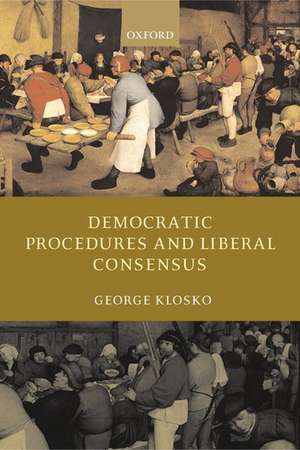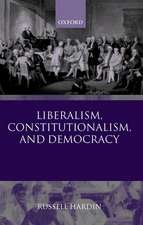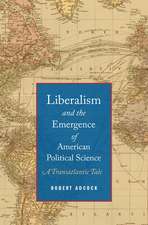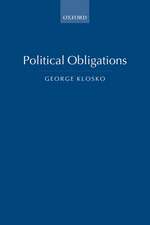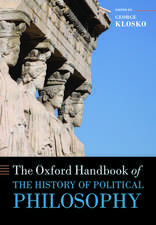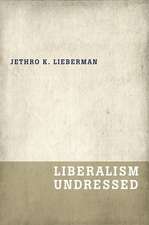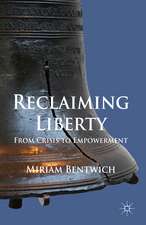Democratic Procedures and Liberal Consensus
Autor George Kloskoen Limba Engleză Paperback – 29 ian 2004
| Toate formatele și edițiile | Preț | Express |
|---|---|---|
| Paperback (1) | 327.42 lei 31-37 zile | |
| OUP OXFORD – 29 ian 2004 | 327.42 lei 31-37 zile | |
| Hardback (1) | 396.13 lei 31-37 zile | |
| OUP OXFORD – 27 ian 2000 | 396.13 lei 31-37 zile |
Preț: 327.42 lei
Preț vechi: 450.75 lei
-27% Nou
Puncte Express: 491
Preț estimativ în valută:
62.65€ • 65.59$ • 51.84£
62.65€ • 65.59$ • 51.84£
Carte tipărită la comandă
Livrare economică 26 martie-01 aprilie
Preluare comenzi: 021 569.72.76
Specificații
ISBN-13: 9780199270200
ISBN-10: 0199270201
Pagini: 284
Ilustrații: 2 tables
Dimensiuni: 156 x 234 x 16 mm
Greutate: 0.44 kg
Editura: OUP OXFORD
Colecția OUP Oxford
Locul publicării:Oxford, United Kingdom
ISBN-10: 0199270201
Pagini: 284
Ilustrații: 2 tables
Dimensiuni: 156 x 234 x 16 mm
Greutate: 0.44 kg
Editura: OUP OXFORD
Colecția OUP Oxford
Locul publicării:Oxford, United Kingdom
Recenzii
Review from previous edition Klosko's argument is throughout careful and lucid.
These studies and arguments... should generate attention and controversy. Thecontroversy has the promise of producing real illumination and improvementin our theories of pluralistic liberal democracy, since they should challengeadherents of the dominant version of political liberalism to confront andimprove and/or revise their account of a well-ordered democratic society.
This study overall sets a fine example of how normative political theory might in particular, and must in general, engage with the messy facts of the real world, a world whose citizens are not the ideal deliberators nor completely reasonable individuals an idealized liberalism would wish them to be.
Klosko's work does a wonderful job of starting to fill the empirical vacuum in which normative theory proceeds, thus opening the door for the subsequent justification of empirically astute accounts of liberal justification.
Klosko's book is informed by both political philosophy and empirical work on religion... It is a most welcome and admirable contribution.
Provides an excellent example of political theorizing worthy of emulation. Klosko should be applauded for providing a study that is not only engaging and insightful, but also original and a valuable contribution to both the existing literature concerning the character of a viable conception of political liberalism and, more generally, the ongoing debate surrounding the nature of an appropriate conception of justice for contemporary pluralistic studies.
These studies and arguments... should generate attention and controversy. Thecontroversy has the promise of producing real illumination and improvementin our theories of pluralistic liberal democracy, since they should challengeadherents of the dominant version of political liberalism to confront andimprove and/or revise their account of a well-ordered democratic society.
This study overall sets a fine example of how normative political theory might in particular, and must in general, engage with the messy facts of the real world, a world whose citizens are not the ideal deliberators nor completely reasonable individuals an idealized liberalism would wish them to be.
Klosko's work does a wonderful job of starting to fill the empirical vacuum in which normative theory proceeds, thus opening the door for the subsequent justification of empirically astute accounts of liberal justification.
Klosko's book is informed by both political philosophy and empirical work on religion... It is a most welcome and admirable contribution.
Provides an excellent example of political theorizing worthy of emulation. Klosko should be applauded for providing a study that is not only engaging and insightful, but also original and a valuable contribution to both the existing literature concerning the character of a viable conception of political liberalism and, more generally, the ongoing debate surrounding the nature of an appropriate conception of justice for contemporary pluralistic studies.
Notă biografică
George Klosko is Professor, Department of Government and Foreign Affairs, University of Virginia
